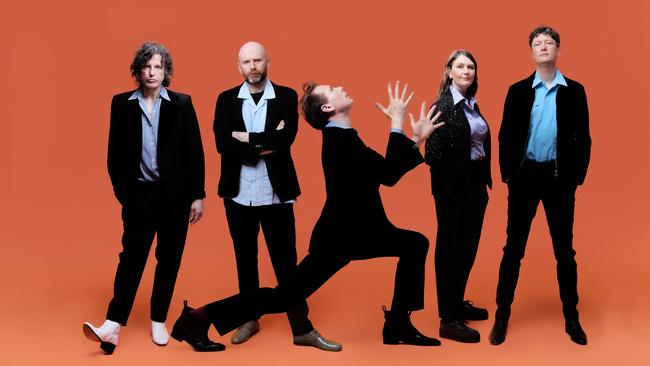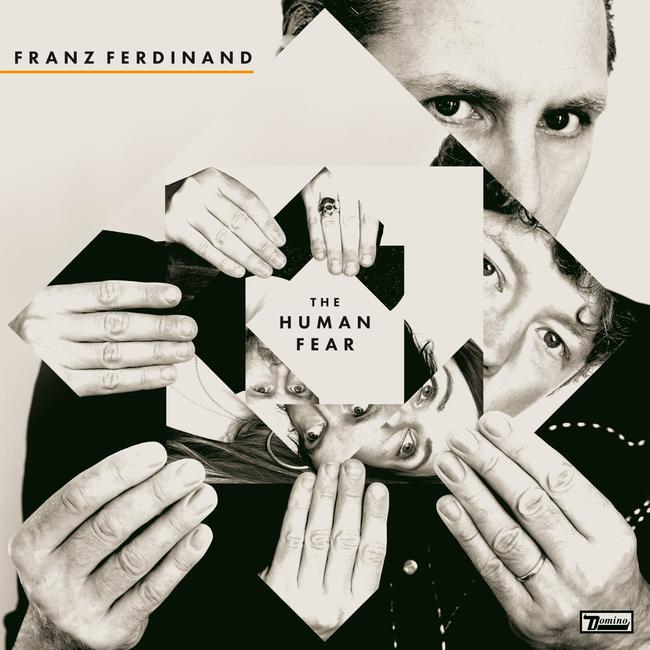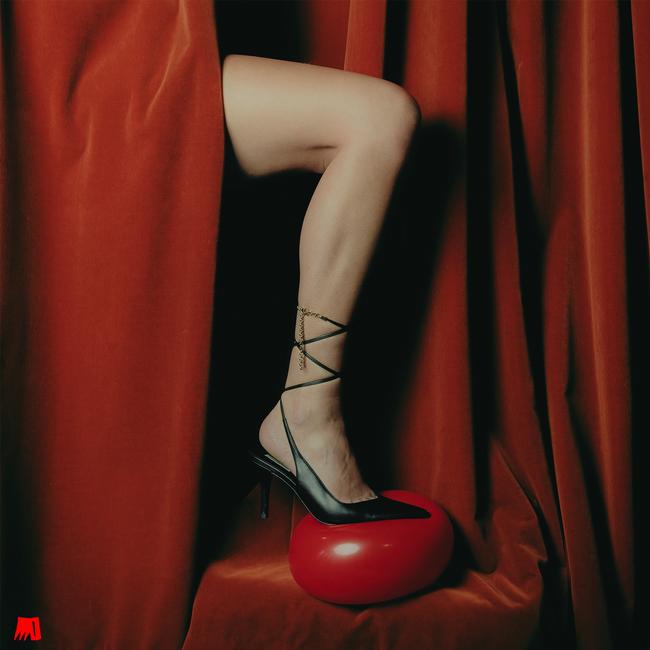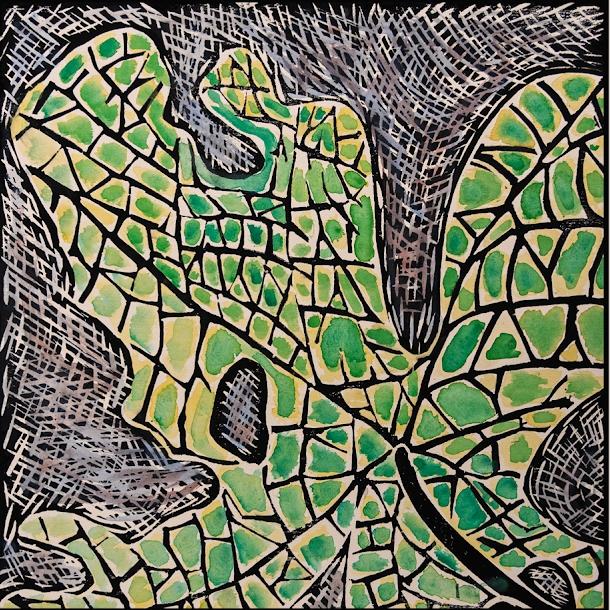Album review: Franz Ferdinand retains indie charisma on The Human Fear
When Franz Ferdinand is firing, it’s like the 2000s-era electroclash heyday never ended, wherein the Scottish indie rock band issued endearing anthems for the skinny jeans generation.

Album reviews for week of January 17 2025:

INDIE ROCK
The Human Fear
Franz Ferdinand
Domino
Of the slew of indie bands that dominated airwaves and festival billings during the mid-2000s, few have had the staying power of Glaswegian ex-art school rockers Franz Ferdinand. The running joke with the group — whose spiky 2004 breakout hit Take Me Out ranks alongside The Killers’ Mr. Brightside as one of the endearing anthems of the skinny jeans generation — is that because the musicians were already in their 30s when they became famous, they were better suited to weather the long haul. Sixth album The Human Fear marks more than two decades of operation, and the band’s chief architect — the unflappably cool Alex Kapranos — is now 52, having infused the band with new blood as various founding members (guitarist Nick McCarthy and drummer Paul Thomson) have bowed out over the years. Age is nothing but a number in rock ‘n’ roll, but it does cast a certain pallor over the type of music Franz Ferdinand makes: angular, danceable music that once bridged the gap between club kids and gig pigs. In the post-genre world of the noughties, where the sonic walls Kapranos and co once demolished with panache no longer exist, it’s a far harder case for a legacy band such as this to make. This is not to say that Franz Ferdinand isn’t still brilliant at what it does. When it’s firing — as it does on sleazy, crunchy synth backroom thumper Hooked and lead single Audacious — it’s like the electroclash heyday of 2005 never ended.
For his part, Kapranos still has one of the most charismatic, Bowie-esque vocal deliveries in popular music, even if lyrically he now seems more concerned with the travails of middle age. The fiery stop-start of Night and Day also signals a band still able to wedge sparkling riffs into tight spaces, while Tell Me Should I Stay, with its beautiful impressionist overtones and orchestral flourishes, opens into a fairground waltz that best signifies where Franz Ferdinand may want to spend the next chapter of its existence. For better or worse, the quintet has set itself up as a band that writes the sort of sticky hits (Darts Of Pleasure, Ulysses, et al) that define an album, rather than exist in spite of it. But aside from the aforementioned Hooked, a decent proportion of The Human Fear drags, particularly toward the back end of its 11 tracks across 35 minutes. These songs are serviceable but unmemorable, even late round throwback Bar Lonely, which gives the tracklist a much-needed boost. While the personnel additions — particularly drummer Audrey Tait, in place since 2021 — means the music sounds fuller than ever, it lacks the immediacy outside of the sporadic highlights. As it enters its third decade, it will be interesting to see where Franz Ferdinand lands sonically. Right now, as with its previous record Always Ascending (2018), it seems like the musicians are very much still torn between the warehouse and the dinner party.
Jonathan Seidler

POST-PUNK
Stiletto
Gut Health
Highly Contagious/AWAL
Gut Health opens its debut album with real gusto, introducing a spiky yet pop-driven sound that evokes the most frantic of New Wave bands. The Melbourne six-piece has already developed a reputation for terrific live shows, and that locked-in intensity is certainly communicated well here. With Athina Uh Oh’s affably snide vocals and Adam Markmann’s animated bass lines riding high in the mix; guitarists Eloise Murphy-Hill and Dom Willmott deliver itchy melodic exchanges underneath. All sharp angles and jittery shifts, it’s an exciting combination that can become less so with over-repetition. That makes it all the more appealing when Gut Health veers off script, as with the spacey call-and-response vocals and dub-like effects of Scripture and the funkier and more distorted turns in Memory Foam, which prompt some welcome vocal flourishes from Uh Oh. But it’s the closing title track that most strongly signals the band’s looming potential. At more than seven minutes long, it’s a suite-like feat of focus that finally breaks its own spell with a rewarding flurry of instrumentation.
Doug Wallen

JAZZ
Where We Are Now
Mosaic
Independent
Mosaic is a 10-piece ensemble inspired by the late John Pochee’s Ten Part Invention (formed in 1986 but still in existence, performing occasionally). The advent of Mosaic, a strong band full of expressive musicians, is a significant event in Australian jazz. Its members met over several years as students in jazz studies at the Sydney Conservatorium: Braden Clarke & Sarah Morrison (trumpet & flugelhorn); Chiara Minotto, Lachie Eggert, Leo Marland and Aidan Wong (saxophones, clarinet, flute); Lee Orszaczky (trombone & bass trombone), Ravi Trachtenberg-Ray (piano), James Watt (upright and electric basses), Matt Simmonds (drums). Mosaic is dedicated to original music, specifically written by band members under 25; it celebrates the swing-feel while otherwise utilising innovative time-feels; its writers take advantage of the instrumental colours afforded by 10 musicians, many of them doublers; and it shows a keen awareness of the avant-garde. I predict a strong future for Mosaic. It has transcended the “student band” ethos, and sounds like a mature, fully professional jazz orchestra.
Eric Myers

ACOUSTIC POP
Last of the Lonely Gods
Jon Toogood
Warner Music
You’ve heard this one before: singer of acclaimed (but by no means huge) rock band – that most likely hit its heyday in the Big Day Out years – releases a mellow solo album reflecting on the more sentimental side of life. It’s predominantly acoustic, some strings pop up here and there, and there’s a solo piano ballad to boot. A case in point this time around is Shihad frontman Jon Toogood, and while this is by no means a bad effort, it sounds entirely like what you’d expect. Lost In My Hometown ticks all the boxes of a “softer” rock record — crisply recorded vocals about childhood memories, accompanied by lush chords and a stomp box — and while it’s certainly nice, it fails to really capture much attention. Gravity sadly isn’t a John Mayer cover but a “go get ‘em” campfire ode and Us Against the World is exactly the slow-burning soft-rock fanfare that you’re likely imagining right now. This all sounds very cynical, but this is in no way a bad record: the production is wonderful, the songs are well-composed, and Toogood is in fine vocal form. It just sounds exactly like you’d expect a Shihad member’s ‘mellowing out’ record to sound like – and that predictability, in and of itself, feels like something of a disappointment.
Alasdair Belling

POP/SOUL/HIP HOP
What Do You Believe In?
Rag’N’Bone Man
Sony Music
Despite the massive success of his first two albums (nine billion streams and counting), the Englishman born Rory Graham – better known as Rag’n’Bone Man – remains a mighty baritone soul voice in search of some truly great songs. His third long-player, What Do You Believe In?, finds the singer in a place of personal contentment, with a new partner and blended family. Yet the bulk of this album’s 12 songs wallow in the torment of his previous relationship. A loose lyric thread details damage and confrontation, with violent metaphors ranging from a car crash aftermath (Wreckage) to a wrestling bout (Chokehold). Each song is tied up with a bow of resolution and rapprochement, however, so as to reassure fans that Graham has indeed moved on. The deployment of multiple producers and songwriters lends a paradoxically generic quality to the sonics, with synths, massed backing voices, strings and drum machines multilayered over what are essentially slight and skeletal piano ballads. The lone outlier is the aptly named Pocket, co-produced by Graham’s close friend Jonny Coffer (Kendrick Lamar, FKA Twigs) and Snow Patrol’s Johnny McDaid; its righteous chorus groove is an otherwise notably absent feature of an unremarkable record.
Phil Stafford



